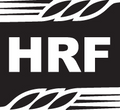Why Did We Quit Using Plastic Feed Bags?

Cyborg Babies
Babies are – for the first time ever - being born without 100% human cells.
Researchers discovered microplastic particles in placentas of unborn babies.
What’s more, the plastics included polypropylene which is widely used for animal feed bags in New Zealand.
How did these particles get into placentas?
They are eaten, drunk or breathed in by mothers.
“It is like having a cyborg baby - no longer composed only of human cells, but a mixture of biological and inorganic entities” said Head Researcher Antonio Ragusa – from San Giovanni Calibita Fatebenefratelli Hospital in Rome.
The microplastic particles discovered in placentas were tiny, 0.01mm, small enough to be carried in the bloodstream.
Scientists don’t yet know the health impact of microplastics in our bodies but the chemicals in them may lead to long-term damage, upset developing immune systems in foetuses or reduce foetal growth and development.
Microplastics in our bodies may trigger immune responses or release of toxins, resulting in damage.

Our New Feed Bags are Much Better for You, Your Family and Your Animals!
We've changed from plastic feed bags (bad for the environment, bad for you) to enviro-friendly, people-friendly paper bags.
Plastic to Paper Feed Bags - Why?
Paper feed bags cost twice as much as plastic, so we didn't do it to save money, that’s for sure!
Plastic bags - like the polypropylene and polylaminate widely used by other feed manufacturers in NZ – break down into tiny microplastic particles causing massive problems. They're damaging to most life forms - from humans to pets to fish.
Babies fed formula milk in plastic bottles are swallowing millions of microplastic particles a day.
So we decided it was time to reduce the amount of plastic in the environment and stop delivering feed in plastic bags – a first for NZ.
Microplastics in Our Bodies
These tiny plastic particles are in our water, in the air and are now found in our food chain. Yes, you're actually eating plastic!
Every Day!
Research shows that, on average, people now ingest about 5 grams of plastic every week. That's the equivalent of a credit card! Every week! The long-term health effects of this are unknown.
Recent lab studies have discovered microplastics in all major human organs, with plastic contamination in tissue samples taken from the lungs, liver, spleen and kidneys.
There’s growing concern that the chemicals in plastics can contribute to a range of negative health outcomes.
There’s also the possibility that microscopic plastic particles in major organs could be carcinogenic irritants, similar to asbestos.
COMMON MISCONCEPTIONS
Misconception #1 - Plastic Feed Bags Safely Bio-Degrade Over Time
When polylaminate or polypropylene bags are said to ‘bio-degrade’ with exposure to sunlight and air, that’s not what happens!
The bags don’t become a useful part of the soil or just dissolve.
Quite the opposite.
They turn into something much nastier and much more dangerous to our bodies, to animals and our waterways.
Once a polylaminate or polypropylene bag is made, it will in time break down into tiny microplastic particles which then find their way into our oceans, our food chains and now, our bodies.



It’s only now that the health and environmental issues caused by these plastics are becoming known, which is why we switched to paper bags.
Misconception #2 - We’re OK, We Recycle Plastic Bags – We Re-Use Them
Recycling plastic feed bags by repurposing them into shopping bags or weed-mat doesn’t actually solve the Plastic Problem.
They still disintegrate into microplastic particles.
It turns out that plastic - useful as it is for packaging - is not so good after all.
Why?
Well, here’s four reasons to start with:
- Already – we can’t recycle the amount of plastic produced. There’s too much plastic being made and recycling systems can’t cope with it all. The amount of plastic being produced is growing rapidly and is projected to increase exponentially!
- Many plastics can't be recycled. Polylaminate and polypropylene feed bags are very seldom recycled and to date there has been almost no capacity for this.
- Even if plastic product can be recycled, often - it isn't. Instead, it goes to the landfill where it breaks down into micro-particles. Which isn’t great. Sometimes it gets loose in the environment - plastic bags blowing around in the wind and floating in the ocean, plastic drink bottles, plastic straws, plastic wrap. You see it everywhere, littering our beaches, on the streets and in parks.
- Even if plastic is actually recycled, it’s still plastic and causes all the same problems as it did before it was recycled!
Plus, do we want Pre-Polluted, Cyborg Babies?
So recycling plastic doesn't fully solve the problem - it doesn't reduce the amount of plastic in the environment and it still breaks down into tiny micro-plastic particles in alarming amounts.
Do we need any more reasons to make a change for the better?
When we found out how much plastic enters the environment… and our bodies… we decided to go out on a limb and take a chance!
Recycling is not a complete answer.
The only real answer is to reduce the amount of plastic we are using.
Wherever we can.
That's the reason why we switched to paper bags for feed.
We reckon that every small step counts towards the reduction of CO2 in our atmosphere and microplastics in the environment and food chain. So we’re pretty stoked to have made a positive change for good, moving from plastic to paper bags and converted to solar power.

We've Gone Solar - A NZ First!
We've installed Solar Panels - 200 of them! - on the roof of our feed mill. That makes us NZ's first Solar-Powered stockfeed manufacturer! Find Out More Here
References
Electricity usage www.ea.govt.nz
A research study in “Environment International” Journal, January 2021 -
https://www.sciencedirect.com/science/article/pii/S0160412020322297
